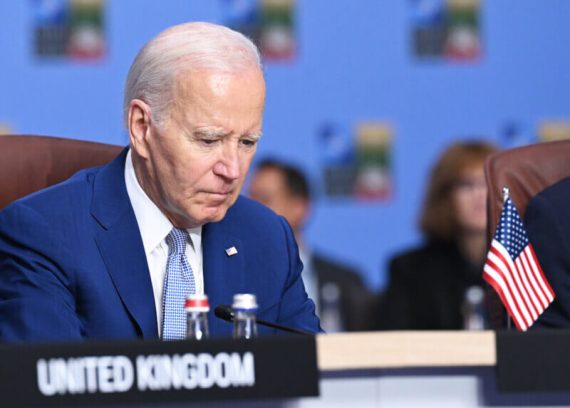Military assistance to Ukraine and its NATO membership are two separate matters. In fact, there is almost complete consensus among Alliance members to provide military assistance to Ukraine. Although some NATO members, such as Germany, were initially reluctant, they have come around to Washington’s line under pressure from their domestic public opinion, Europe, and the United States.
In the early stages of the Russia-Ukraine war, Berlin was only prepared to provide Ukraine with troops, but it has now supplied the country with Leopard 2 tanks and advanced air defence missiles. From this point of view, NATO, which has organized itself very quickly and decisively to support Ukraine militarily, will continue this support until it achieves its goals with regard to Russia.
There are already problems with the production of ammunition for certain weapons due to their intensive use on the Ukrainian front, yet, one of the most important factors determining the course of the struggle between NATO and Russia will be the production of weapons and ammunition, given that Russia is experiencing similar problems to a much greater extent.
The issue of Ukraine’s NATO membership, which is expected to be one of the main items on the agenda at the Vilnius summit, has caused serious disagreement between member states. Some, particularly the Baltic and several Eastern European countries, argue that Ukraine should become a member of NATO quickly, while others, such as the United States and Germany, where there is intense internal debate on the issue, oppose such a quick decision.
Those in favor of a more cautious approach suggest to wait until the end of the war to decide on the issue, fearing that Ukraine’s possible NATO membership during the war would draw them into direct armed conflict with Russia and would also complicate peace negotiations with Russia. They are considering postponing a decision in the hope that, at the end of the war, there will be a weakened Russia unable to oppose Ukraine’s NATO membership. Therefore, it seems unlikely that a decision on Ukraine’s NATO membership will be taken at the Vilnius summit.
However, given the establishment of a NATO-Ukraine Council and the strong likelihood that Ukraine will not be required to meet the preconditions of the Membership Action Plan for the accession of new members, such as the fight against corruption, which was previously included in the Membership Action Plan adopted at the Bucharest Summit, the door will be left open for Ukraine’s membership in the medium term. This issue will be closely linked to the development of NATO’s Russia policy and the outcome of the war. Moreover, Russia’s policy towards the West will be crucial to Ukraine’s NATO membership.
Increasing military spending will be one of the main items on the summit agenda. For some NATO members, this is not an easy objective. While the shock of Russia’s aggression in Ukraine has motivated these countries, which have been lax on military spending, to increase their armaments, it will be difficult for them to do so quickly because their economies and military infrastructures have been geared to low military spending for many years.
Even Germany, which is seen as the country with the greatest change in this regard, is hesitant to increase its military spending to 2% of GDP. Although the current SPD-Greens-FDP coalition government has announced that it has reached a joint decision to reach this target, the coalition’s junior partners, the Greens and the FDP, want to reach this target sooner, while the senior partner, the SPD, wants to spread it out over time. Achieving this goal, which would require an increase in military spending by tens of billions of dollars, would require radical changes in budgetary planning and could lead to structural problems for Germany, which has built itself up since 1949 as a “trading state.”
For NATO members, such as Italy and Spain, which have not yet resolved their economic problems caused by the Euro debt crisis, increasing their military spending from 1.5% to more than 2% would mean additional problems for their budget balances. In addition, the military spending of NATO members such as Canada, Belgium, the Netherlands, the Czech Republic, and Ireland remains well below the Alliance’s target. It should be recalled that NATO has set the 2% limit as a minimum target, and Secretary General Jens Stoltenberg has persistently called for more than 2% military spending in the member states he has visited.
While Russia’s aggression in Ukraine has created a strong motivation for NATO to increase military spending, the disruptions it has caused to energy and food supplies, and prices, and the resulting economic challenges have left many members struggling to find the financial resources to increase their military spending. It is worth noting that NATO members, especially those with growing economic problems, will find it difficult to meet the Alliance’s targets for increasing military spending.
Meanwhile, the U.S. administration wants to see its NATO allies on its side in the fight against China, just as it has done with Russia. Yet, it is no secret that there are members who have reservations about this; Germany, France, and Turkey are among such countries, albeit for different reasons.
Recommended
In the aftermath of the Trump era, European NATO members are struggling to trust the United States, making it difficult for them to follow Washington’s lead, especially when it comes to a policy towards China. The same reluctance was also present about a policy towards Russia; however, the Russia-Ukraine war helped to remove this reluctance and align countries behind the U.S. Now Washington wants to capitalize on this shock momentum and rally its European allies behind its line against China.
In addition to the shock effect of Russia’s aggression in Ukraine, the U.S. has another advantage in rallying the Europeans behind it: “American friends” in Europe. These “American friends,” commonly known as Atlanticists, are everywhere in Europe. They are in power in countries like Lithuania, Estonia, and Poland, and are partners in coalition governments in countries like Germany.
Given that China has not made a mistake similar to Russia’s aggression against Ukraine, but instead is trying to create a sphere of influence for itself through economic cooperation, and given its close economic ties with some European countries, it will not be as easy for Washington to rally NATO members behind its fight against Beijing as it has been to rally them against Moscow.





